You could have taken a few courses to hone your technical abilities if you believe you have what it takes to work in the expanding and profitable IT sector. Perhaps you are already the go-to person for an office or home computer repairs, or the one they rely on to teach people how to use mobile apps. But how can you persuade a potential employer that you have the requisite skills to work in the area if you have little to no practical IT experience or even a college degree in computer science or IT? Many believe that earning the appropriate IT certification is the best approach to entering the field.
Why do Certifications?
The best way to demonstrate one's level of knowledge and skills to potential employers is through certifications. Performance-based questions on certification tests force candidates to carry out actions associated with a particular work description, demonstrating their suitability for the position. Examining the job descriptions of target positions is essential when deciding which certification to pursue. Help desk positions are often where most IT professionals begin their careers before moving on to other areas like cybersecurity or cloud computing.
Focus on job titles like help desk specialist, help desk analyst, help desk support technician, technical support specialist, or IT technician or assistant when searching for employment. the certificates that are most frequently referenced for those occupations. Choose the qualification that will help you achieve your job goals the most in the end.
Top 5 Best IT Certification Courses for Beginners
Google IT Support Professional (Coursera)
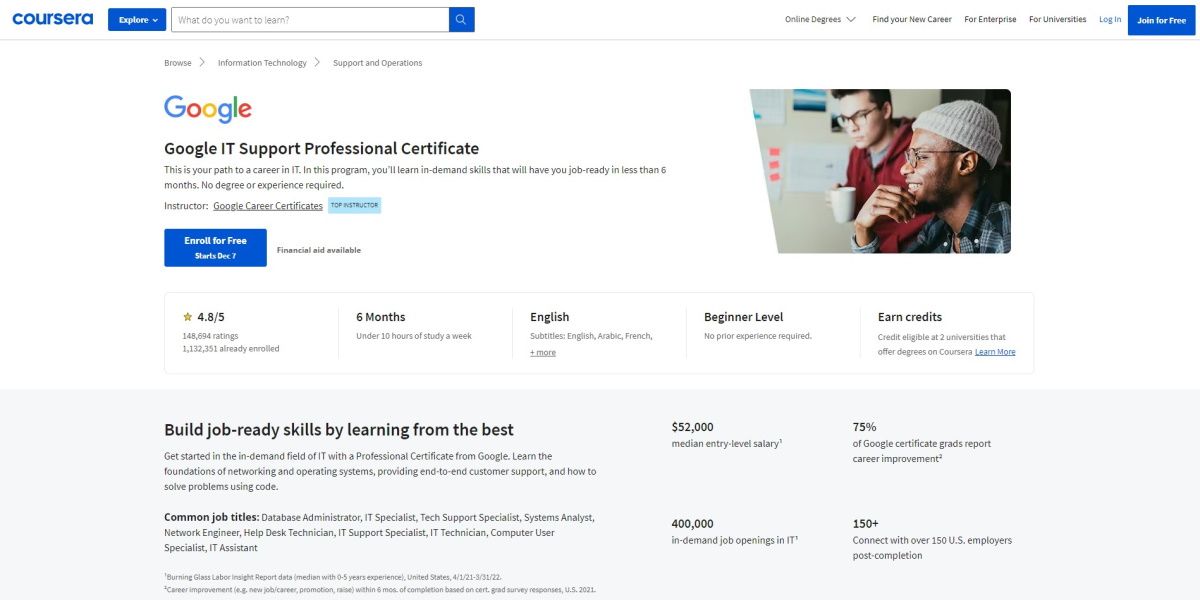
Some of the most effective routes to a job in IT are Google courses. In-demand skills including cloud computing, network protocols, binary coding, debugging, Linux, domain name system (DNS), and customer service are taught in this six-month course.
This course is for you if you believe that your lack of a college degree or an IT profession inherently disqualifies you from certain career positions. Without credentials, finding a job that pays well may be difficult. Even if you didn't complete a four-year programme or work at a tech company, this Google credential will qualify you for entry-level IT positions.
Start with this course if you want to learn how to start a career in technology without any prior expertise. After that, you'll be able to submit applications for positions like IT Assistant, IT Technician, IT Support Specialist, and IT Specialist.
Coding for Beginners: You Can Code (Skillshare)
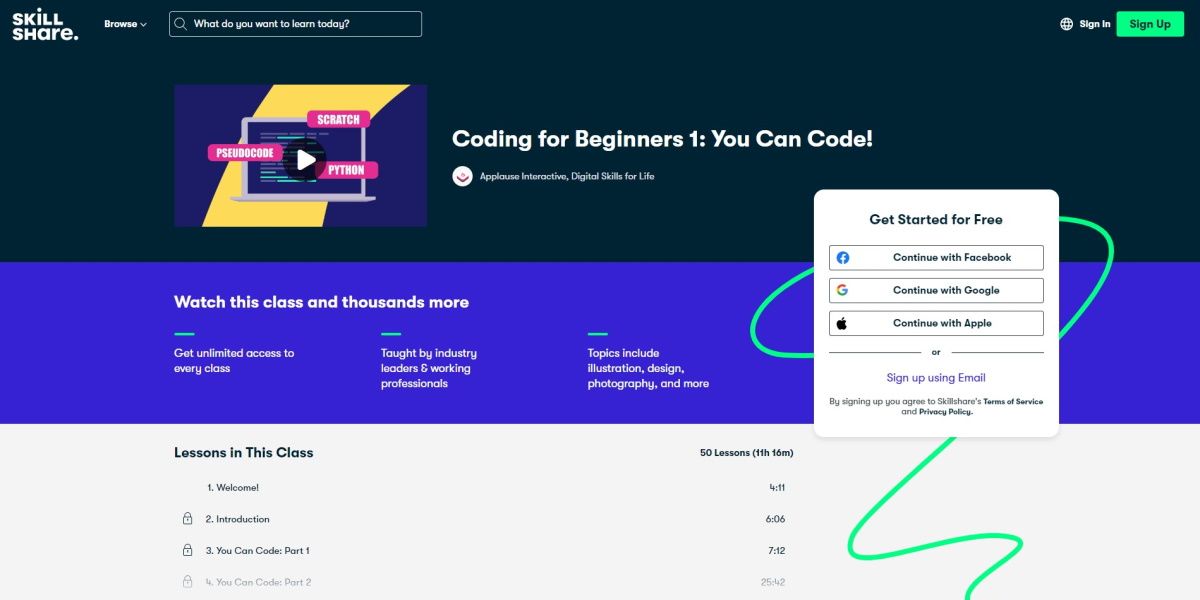
IT and IT careers are available that don't require coding or programming (like IT Project Manager). However, one of the greatest ways to do that is to learn to code if you want to increase your options for IT careers. Try Skillshare's Coding for Beginners if you want to start from scratch learning how to code.
Scratch and Python are covered in 50 lessons totalling 11.16 hours throughout the course. Children's programming language Scratch is free and easy to use. You can use it to make animated stories, games, and other interactive content. Python is a well-liked programming language that has a wide range of applications, including data research and web development.
In addition to exposing you to common programming vocabulary, the course also includes practical tasks. You'll study fundamental concepts and use them in a straightforward project. You'll have created your first app by the conclusion of the lessons!
CompTIA A+
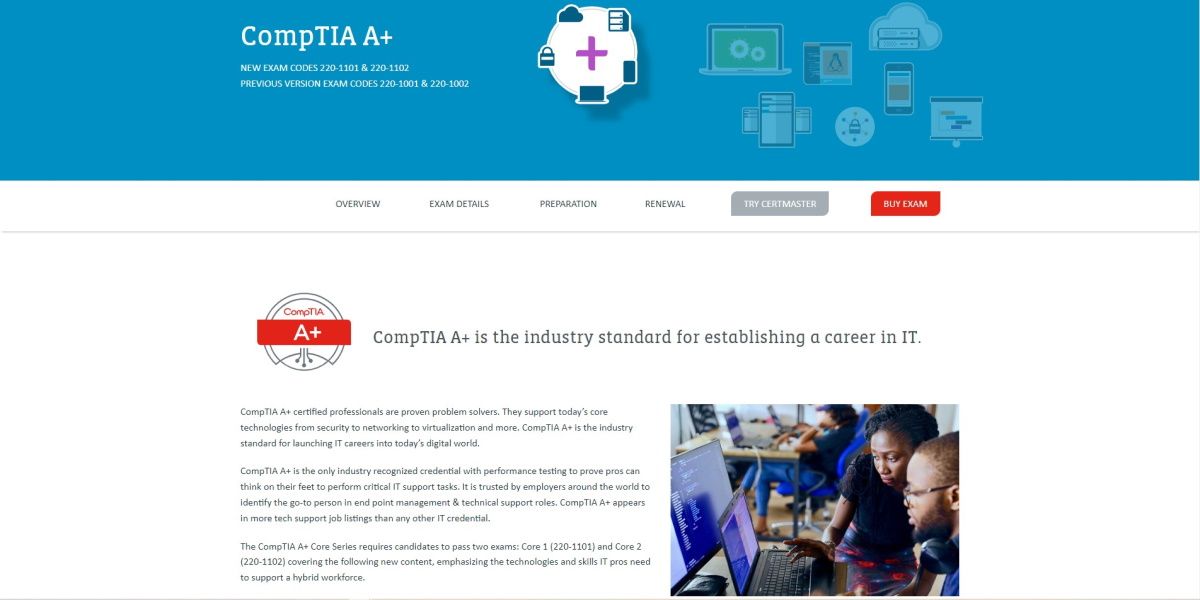
Don't let the course name frighten you. The American nonprofit trade association known as CompTIA, or Computing Technology Industry Association, has existed since 1982. You require the A+ certification to be considered for entry-level IT positions. A+ is the ideal certification for professionals who plan to expand their IT knowledge in the future because it is offered by CompTIA, the industry leader in IT certifications. Hardware, troubleshooting, computer networking, operating systems, mobile devices, cloud computing, and IT security are just a few of the topics covered in the course to get you ready for a career in IT.
You must pass the 90-minute Core 1 and Core 2 tests in order to receive your certification. The tests will also cover the relevant technology to support hybrid work settings because IT skills are needed to support numerous industries with a growing need for remote work. Compared to the other courses on this list, CompTIA takes more time and effort to complete. To take the CompTIA A+ examinations, you must have 9–12 months of experience or an equivalent amount of instruction. Following that, your certification will be good for three years. After that, you can renew it by completing additional coursework, obtaining a more advanced IT certification, or completing 20 continuing education units (CEUs).
Fundamentals of Cybersecurity (Codecademy)
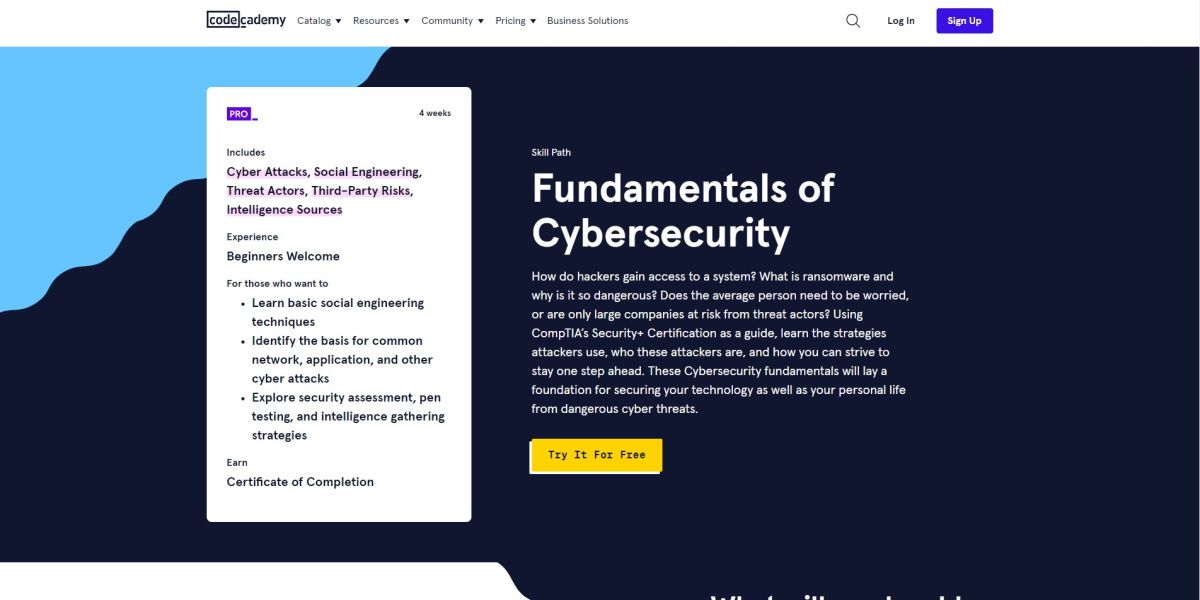
Currently, some of the most sought-after skilled individuals are cybersecurity specialists. According to PR Newswire, there have been more job advertisements for cybersecurity positions lately. This seminar is for you if defending against ransomware and cyberattacks makes you feel like a brave Jedi.
Fundamentals of Cybersecurity leads you through the fundamental social engineering techniques that con artists employ, with guidance from the CompTIA Security+ Certification. You'll discover how to recognise a cyberattack and create defences against the danger. This course will be helpful to you personally even if you decide against pursuing a career in information technology.
Information Technology Foundations (edX)
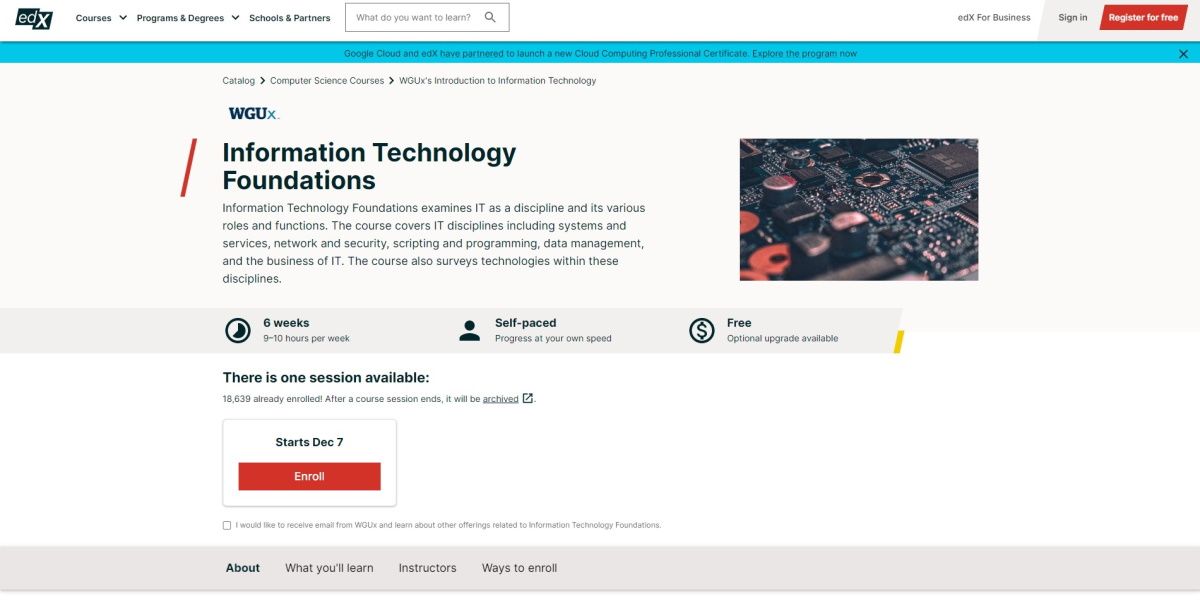
This is the finest starter certification course for you if you're new to IT and want to learn how IT helps organisations. For optimal operation, many sectors rely substantially on IT. IT Technology Foundations aids with your comprehension of the fundamentals and equips you to work in a variety of industries.
With edX, IT Foundations instruction lasts just six weeks. The lessons look at how the IT system boosts efficiency, profitability, and corporate growth. You'll learn about numerous administrative positions, project development processes, and IT industry ethics. Additionally, you'll be introduced to technology from several IT fields, including data management, business, network, and security.
Obtain Certification to Begin Your IT Career
In the ever-evolving sector of IT, learning never ends. It is possible to begin an IT job even if you are a recent graduate or career switcher. Even if these introductory classes aren't free, they're still cheaper than paying thousands of dollars for college each year.
You are prepared for job progression with these courses. Spend some time each day learning about the IT career path you wish to pursue because some are more difficult than others. Invest in one of these courses once you've decided on your area of specialisation to begin your IT career.



